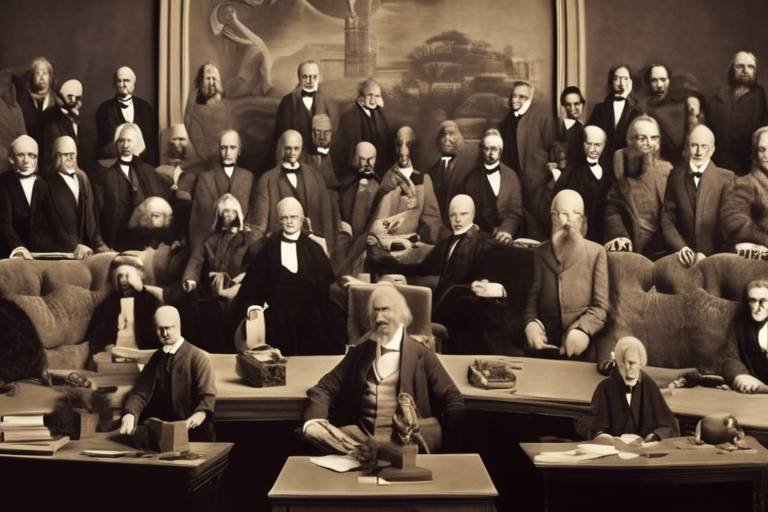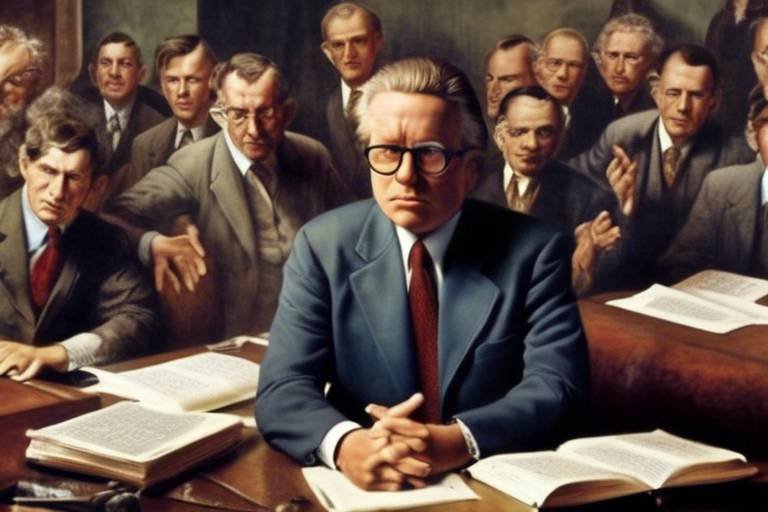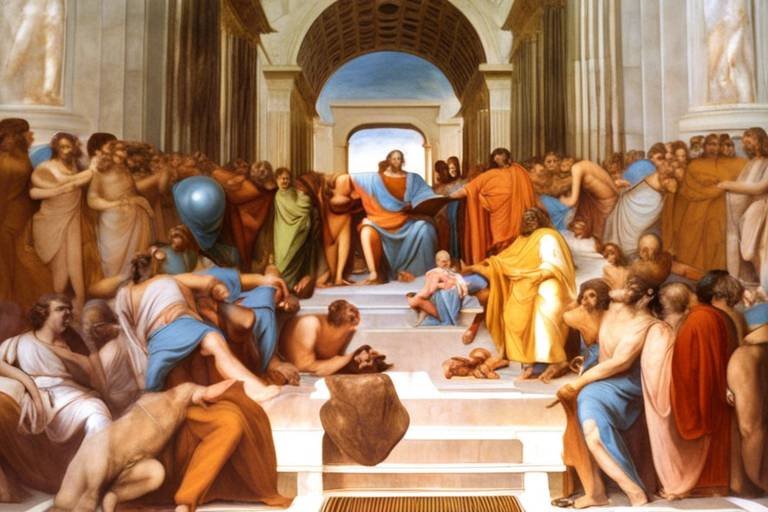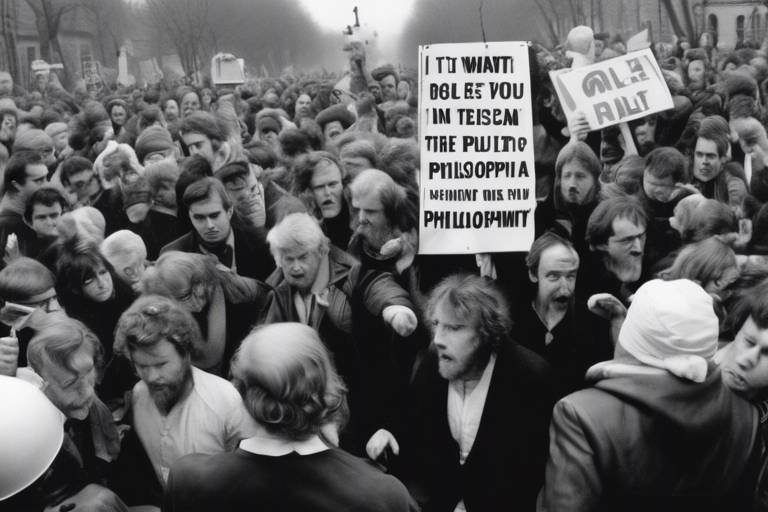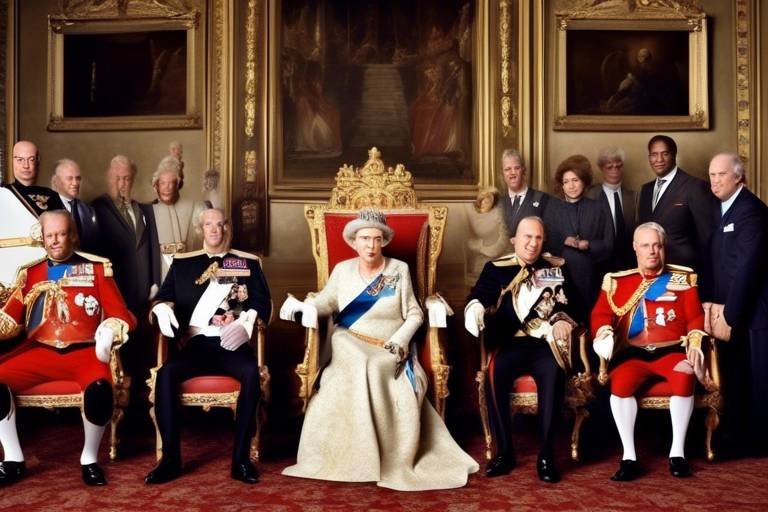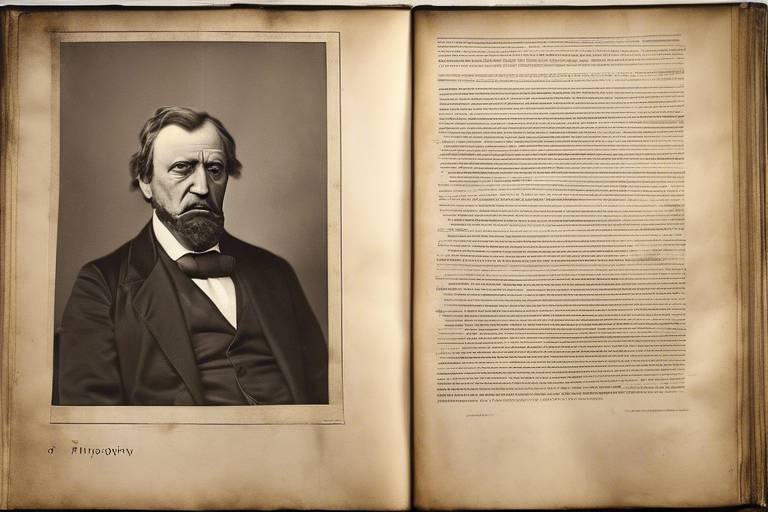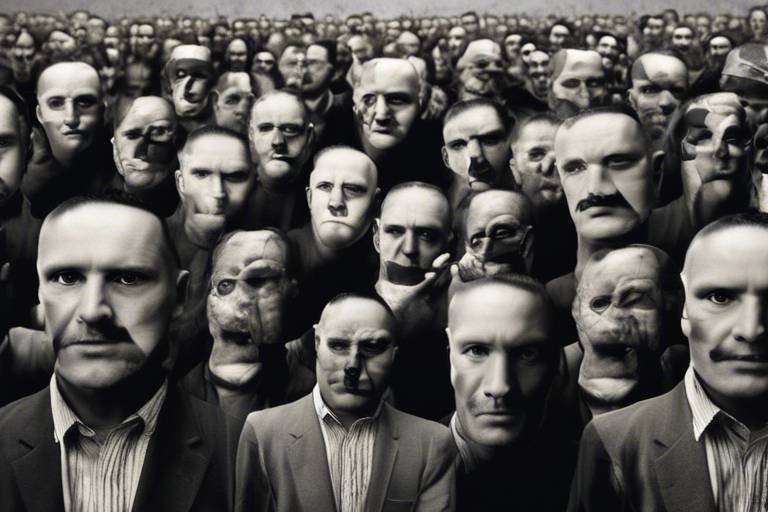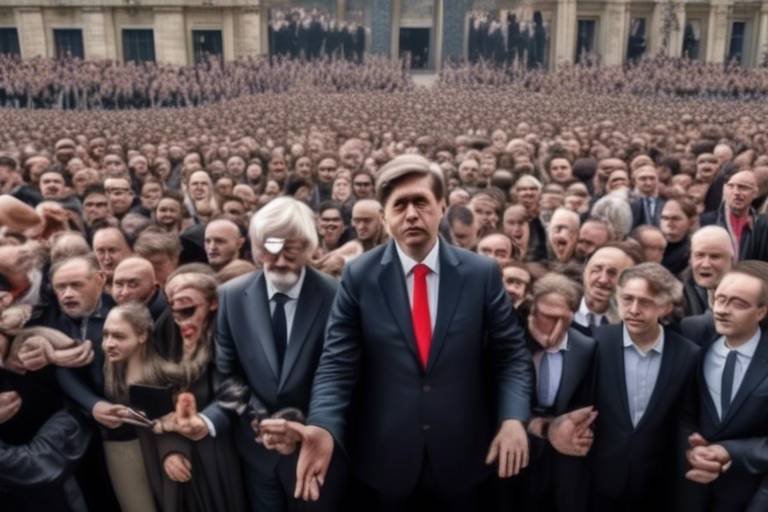Analyzing the Politics of Philosophy Through Time
This article explores the intricate relationship between philosophy and politics, examining how philosophical ideas have influenced political systems and vice versa throughout history. The dance between these two fields is not just a historical curiosity; it’s a living dialogue that shapes our world today. Imagine philosophy as the compass, guiding the ship of politics through turbulent waters. Each philosophical idea, each theory, serves as a rudder, steering political thought and action in various directions. But how did we get here? What are the roots of this fascinating interplay? Let’s embark on this journey through time to uncover the layers of thought that have shaped our political landscape.
The origins of political philosophy can be traced back to the ancient civilizations where thinkers began to ponder the nature of governance and the role of the state. In these early days, questions about justice, power, and the ideal society began to emerge. Thinkers like Socrates, Plato, and Aristotle laid the groundwork for what would become a rich tapestry of political thought. Their discussions were not merely academic; they were deeply intertwined with the governance of their respective city-states. For instance, Plato's allegory of the cave illustrates how enlightenment can lead to better governance, while Aristotle’s empirical approach emphasizes the importance of understanding human nature in political systems.
Throughout history, several philosophers have made significant contributions to political theory, each leaving an indelible mark on modern ideologies. Their works serve as a lens through which we can view the evolution of political thought. The likes of Plato, Aristotle, and Machiavelli have provided frameworks that still resonate today. These thinkers grappled with the complexities of power, ethics, and the human condition, offering insights that challenge and inspire contemporary political discourse. Their theories have not only shaped political practices but have also sparked revolutions and reformations across different eras.
In his seminal work, The Republic, Plato presents a vision of an ideal state governed by philosopher-kings. He argues that only those who have attained true knowledge can justly govern, as they understand the forms of justice and goodness. This notion of the philosopher-king raises compelling questions about the relationship between knowledge and power. Can a ruler truly be just without understanding the essence of justice? Plato’s ideas challenge us to consider the qualifications necessary for leadership and the moral responsibilities that come with power. His vision emphasizes the importance of philosophical inquiry in creating a just society, suggesting that political leaders should be well-versed in philosophy to make informed decisions.
Contrasting with Plato, Aristotle takes a more pragmatic approach to politics in his work, Politics. He emphasizes the importance of empirical observation and ethics, arguing that the best political systems are those that promote the common good. Aristotle’s focus on civic responsibility and the role of citizens in governance underscores the idea that politics is not merely the domain of the elite but a collective endeavor. He famously categorized governments into three good forms (monarchy, aristocracy, and polity) and their corrupt counterparts (tyranny, oligarchy, and democracy). This classification invites us to reflect on the nature of our own political systems and the responsibilities we hold as citizens.
In stark contrast to his predecessors, Machiavelli offers a raw and realistic view of political power in his work, The Prince. He famously asserts that the ends justify the means, a statement that has sparked endless debate about ethics in politics. Machiavelli’s exploration of human nature reveals the complexities of statecraft, where moral considerations often take a backseat to political necessity. His insights challenge traditional moral philosophies and compel us to consider the often harsh realities of political life. By dissecting power dynamics, Machiavelli provides a lens through which we can analyze contemporary political strategies and the ethical dilemmas faced by leaders today.
The Enlightenment era brought forth a wave of philosophical thought that revolutionized political landscapes. Thinkers like John Locke and Jean-Jacques Rousseau championed the concepts of individual rights and the social contract, laying the foundation for modern democracy. Locke’s idea that government derives its authority from the consent of the governed resonates deeply in today’s democratic practices. Rousseau’s emphasis on the general will and popular sovereignty challenges us to think about the role of the individual in shaping collective governance. These Enlightenment ideals not only inspired revolutions but also continue to influence political movements advocating for freedom and equality.
The relationship between philosophy and politics is not a relic of the past; it continues to shape modern political movements. Philosophical ideas have inspired various movements, including existentialism, feminism, and Marxism, each contributing to contemporary political discourse. These movements often challenge existing power structures and advocate for social change, illustrating the ongoing relevance of philosophical thought in addressing societal issues. By analyzing these movements, we can better understand how philosophical frameworks inform political ideologies and practices today.
Existentialist philosophers like Jean-Paul Sartre and Albert Camus delve into themes of individual freedom and responsibility within political contexts. They argue that true freedom comes from acknowledging our choices and the weight of those choices on society. Sartre’s notion of “bad faith” critiques individuals who conform to societal pressures, encouraging a more authentic engagement with political life. This perspective invites us to consider our role in the political sphere and the importance of personal agency in shaping our collective future.
The intersection of feminism and political philosophy has sparked significant discussions about gender equality and the structures that perpetuate inequality. Key feminist theorists have challenged traditional political frameworks, advocating for the inclusion of women’s perspectives in political discourse. This movement has reshaped our understanding of power dynamics and the need for equitable representation in governance. Feminist political philosophy emphasizes the importance of recognizing diverse voices in shaping policies that affect all members of society, urging us to rethink the foundations of political power.
- What is the relationship between philosophy and politics? Philosophy provides the foundational ideas that shape political systems, while political realities can influence philosophical thought.
- Who are some key philosophers in political philosophy? Important figures include Plato, Aristotle, Machiavelli, Locke, Rousseau, Sartre, and feminist theorists.
- How do philosophical ideas impact modern political movements? Philosophical frameworks inspire movements that challenge existing power structures and advocate for social change.
- What role does existentialism play in politics? Existentialism emphasizes individual freedom and responsibility, encouraging authentic engagement in political life.
- How has feminism influenced political philosophy? Feminism has challenged traditional political structures, advocating for gender equality and diverse representation in governance.

The Origins of Political Philosophy
The journey into the origins of political philosophy is akin to embarking on an intellectual adventure that has shaped the very fabric of our societies. It all began in ancient civilizations, where the seeds of political thought were planted by early thinkers who pondered the nature of governance, justice, and the role of individuals within the state. The ancient Greeks were particularly influential, laying the groundwork for political philosophy that resonates even today.
In the midst of this intellectual blossoming, we find figures like Socrates, whose method of questioning laid the foundation for critical thinking. Socrates believed in the power of dialogue and the pursuit of truth, often challenging the status quo. His student, Plato, took these ideas further, envisioning a society governed by philosopher-kings who would rule based on wisdom and reason. Plato’s work, particularly in The Republic, is a cornerstone of political philosophy, exploring the concept of justice and the ideal state.
However, it was Aristotle, another giant of Greek thought, who shifted the focus from idealism to practicality. He emphasized the importance of empirical observation and the study of actual political systems. Unlike Plato, who sought the perfect state, Aristotle analyzed existing governments, categorizing them into different forms such as monarchy, aristocracy, and democracy. His work, Politics, serves as a crucial text that bridges the gap between philosophical ideals and the messy reality of governance.
As we delve deeper into history, we encounter the Roman contributions to political philosophy, where thinkers like Cicero and Seneca examined the relationship between law and morality. They pondered questions about citizenship, the role of the state, and the responsibilities of individuals. This period laid the groundwork for later developments in Western political thought, particularly during the Enlightenment when ideas about democracy and individual rights began to flourish.
In summary, the origins of political philosophy can be traced through a rich tapestry of thought that has evolved over centuries. From the dialogues of Socrates to the empirical studies of Aristotle, these early philosophers grappled with fundamental questions that continue to resonate today. Their ideas not only influenced the political structures of their time but also set the stage for future thinkers who would challenge and expand upon these concepts.
- What is political philosophy? Political philosophy is the study of fundamental questions regarding the state, government, politics, liberty, justice, and the enforcement of a legal code by authority.
- Who are the key figures in the origins of political philosophy? Key figures include Socrates, Plato, and Aristotle, each contributing unique perspectives that shaped early political thought.
- How did ancient Greek philosophy influence modern political systems? Ancient Greek philosophy introduced concepts such as democracy, justice, and the role of the individual in governance, which are foundational to modern political ideologies.

Influential Philosophers and Their Political Theories
The realm of political philosophy has been profoundly shaped by the thoughts and writings of several key figures throughout history. These influential philosophers have not only questioned the nature of governance but have also proposed various frameworks that continue to influence political ideologies today. From the idealism of Plato to the realism of Machiavelli, their contributions have sparked debates that resonate even in contemporary political discourse.
One of the most significant philosophers, Plato, envisioned a society governed by philosopher-kings, individuals who possess both wisdom and virtue. In his seminal work, The Republic, he argued that a just society could only be achieved when those who understand the forms of justice and goodness are in power. Plato's ideal state is characterized by a rigid class structure where the rulers, guardians, and producers each play distinct roles. This vision raises intriguing questions about the nature of justice and the qualifications necessary for leadership. How do we determine who is truly wise enough to govern?
In stark contrast, Aristotle, a student of Plato, took a more pragmatic approach. His work, Politics, emphasizes empirical observation and the importance of civic responsibility. Aristotle believed that the best political system is one that promotes the common good, arguing that citizens should actively participate in governance. He categorized governments into three ideal forms: monarchy, aristocracy, and polity, each with its corrupt counterpart—tyranny, oligarchy, and democracy, respectively. Aristotle’s emphasis on practical governance over theoretical ideals invites us to consider the effectiveness of our political systems today. Are we fostering civic engagement, or are we merely spectators in our own governance?
Then we have Niccolò Machiavelli, who brought a refreshing yet controversial perspective to political thought. In The Prince, Machiavelli famously asserted that the ends often justify the means, challenging the traditional moral compass that many philosophers adhered to. His realistic approach to politics emphasizes the complexities of human nature and the necessity for leaders to sometimes act immorally to maintain power and stability. This pragmatic viewpoint has led to the term "Machiavellian," often used to describe cunning or deceitful political strategies. But is it truly wise to prioritize power over morality in governance?
Moving forward into the Enlightenment era, philosophers like John Locke and Jean-Jacques Rousseau introduced ideas that would lay the groundwork for modern democracy. Locke's theories on natural rights and the social contract emphasized the importance of individual liberty and government accountability. He argued that governments derive their authority from the consent of the governed, a revolutionary idea that challenged the divine right of kings. Rousseau, on the other hand, focused on the concept of the general will, suggesting that true sovereignty lies with the people. His work, The Social Contract, questioned the legitimacy of political authority and called for a system where citizens actively participate in shaping their governance. These Enlightenment thinkers paved the way for democratic ideals that continue to influence political movements today.
In conclusion, the political theories proposed by these influential philosophers have not only shaped their respective eras but have also left an indelible mark on modern political thought. Their ideas challenge us to reflect on the nature of power, governance, and the role of individuals within a society. As we navigate the complexities of contemporary politics, we can draw insights from their works and consider how their philosophies can inform our understanding of justice, authority, and civic duty.
- What is political philosophy? Political philosophy is the study of fundamental questions regarding the state, government, politics, liberty, justice, and the enforcement of a legal code by authority.
- How did Plato influence political thought? Plato's concept of philosopher-kings and his ideal state model have profoundly influenced notions of governance and the role of leaders in society.
- What is Machiavelli known for? Machiavelli is known for his pragmatic approach to politics, particularly his assertion that the ends justify the means in political leadership.
- What role did Enlightenment thinkers play in modern democracy? Enlightenment thinkers like Locke and Rousseau introduced ideas of individual rights and social contracts, which are foundational to modern democratic systems.
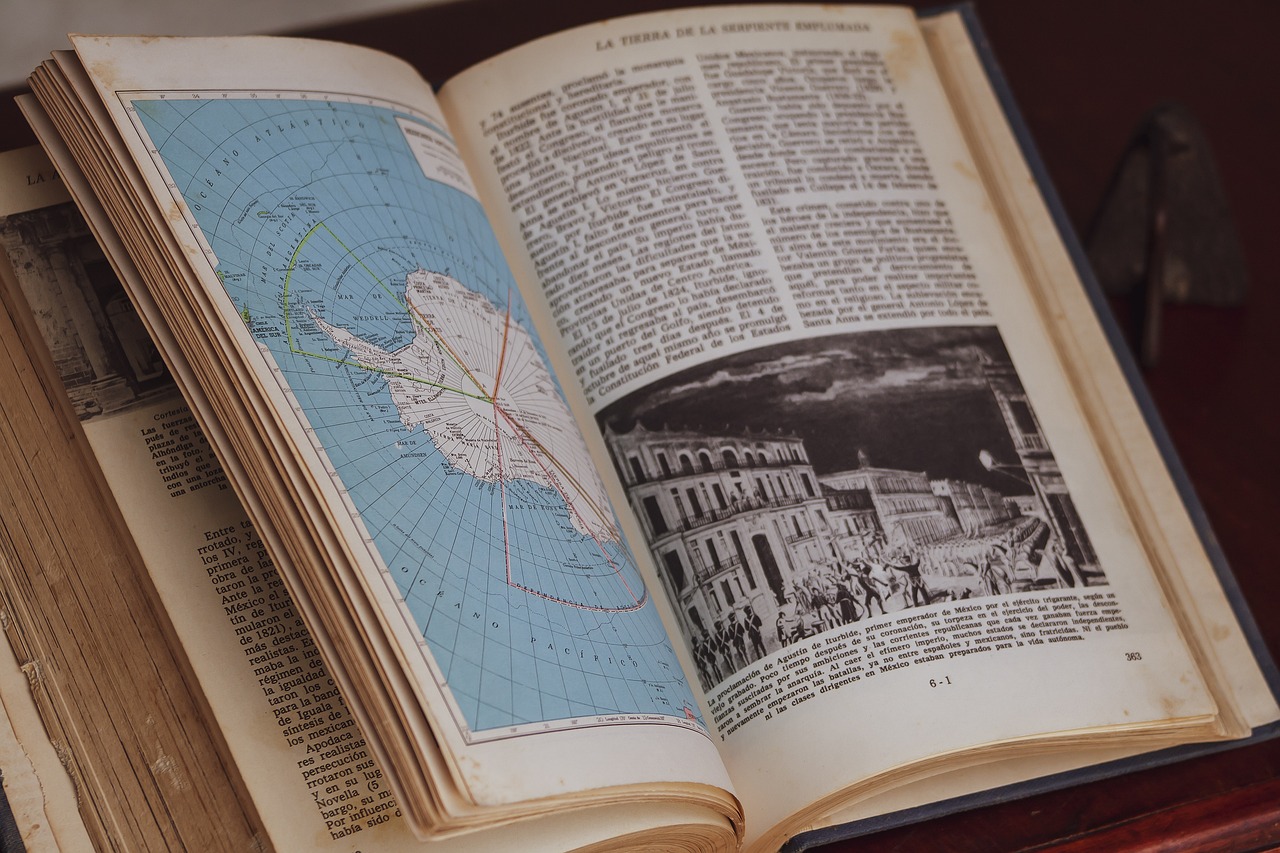
Plato’s Ideal State
When we dive into the depths of Plato's vision of an ideal state, we find ourselves navigating through a realm of intricate ideas and profound implications. In his seminal work, The Republic, Plato outlines a society governed by the principles of justice and wisdom, where the ruling class consists of philosopher-kings. These rulers, possessing both knowledge and virtue, are believed to be the most capable of leading society toward the common good. But what exactly does this mean for governance? Let's break it down.
Plato argues that the ideal state is structured in a way that reflects a harmonious balance among its classes, which he divides into three distinct groups: the rulers, the auxiliaries, and the producers. Each class has its unique role and function, contributing to the overall stability and prosperity of the society. The rulers are responsible for making decisions, the auxiliaries (or warriors) protect the state, and the producers handle the economy and provide for the community. This tripartite structure is essential for ensuring that no single class dominates the others, creating a system of checks and balances.
At the heart of Plato's political philosophy is the concept of justice. He famously states that justice occurs when each class performs its role without overstepping its boundaries. This idea resonates with the notion that a well-ordered society is akin to a well-tuned musical composition, where each instrument plays its part in harmony. The implication here is profound: justice is not merely a legalistic concept but a fundamental principle that governs human relations and societal structures.
Moreover, Plato introduces the allegory of the cave to illustrate the philosopher's journey towards enlightenment and the importance of knowledge in governance. In this allegory, prisoners are confined in a cave, only able to see shadows of objects cast on a wall. One prisoner escapes and discovers the outside world, realizing that the shadows are mere illusions. This metaphor serves as a powerful reminder of the philosopher-king's role: to seek truth and wisdom beyond the superficial appearances of reality. In Plato's view, only those who have ascended from the darkness of ignorance are fit to rule.
However, the practicality of Plato's ideal state raises questions. Can such a society truly exist? Is it feasible to have rulers who are both wise and virtuous? Critics argue that this model is overly idealistic, neglecting the complexities of human nature and the potential for corruption. Yet, the beauty of Plato's vision lies in its aspiration for a society governed by reason rather than sheer power. It challenges us to think critically about our own political systems and the qualities we value in our leaders.
In summary, Plato’s ideal state serves as a foundational concept in political philosophy, emphasizing the significance of justice, the role of knowledge, and the importance of a structured society. It invites us to reflect on the qualities of our leaders and the systems we endorse. As we continue to navigate the complexities of modern governance, Plato's insights remain relevant, urging us to strive for a society that values wisdom and justice above all.
- What is Plato's ideal state? Plato's ideal state is a society governed by philosopher-kings who possess knowledge and virtue, structured in a way that promotes justice and harmony among its classes.
- How does Plato define justice? Plato defines justice as each class performing its role without interfering with others, contributing to the overall stability of society.
- What is the allegory of the cave? The allegory of the cave is a metaphor used by Plato to illustrate the philosopher's journey from ignorance to enlightenment, highlighting the importance of knowledge in governance.
- Is Plato's ideal state practical? Critics argue that Plato's ideal state is overly idealistic and may not be feasible due to the complexities of human nature and the potential for corruption.

The Republic,
This article explores the intricate relationship between philosophy and politics, examining how philosophical ideas have influenced political systems and vice versa throughout history.
This section delves into the beginnings of political philosophy, highlighting key thinkers and their contributions that shaped early political thought and governance structures.
An overview of prominent philosophers, such as Plato, Aristotle, and Machiavelli, whose political theories have left a lasting impact on modern political ideologies and practices.
Examining Plato's vision of an ideal state in The Republic, this section discusses the implications of his theories on justice, governance, and the role of the philosopher-king. Plato’s work is a profound exploration of how a society should be structured, emphasizing the importance of justice as a foundational principle. He believed that the ideal state would be governed by philosopher-kings, individuals who possess both wisdom and a love for knowledge. This concept raises a fascinating question: can true knowledge ever be separated from power? Plato argued that only those who understand the essence of justice can effectively rule. In his view, the philosopher-king is not just a ruler but a guardian of the state’s moral compass.
In The Republic, Plato introduces the allegory of the cave, a powerful metaphor illustrating the journey from ignorance to enlightenment. Imagine prisoners shackled inside a dark cave, only able to see shadows cast on the wall. This represents the human condition—limited understanding of reality. The philosopher, upon escaping the cave, sees the world in its true form and returns to enlighten others. However, this journey is fraught with challenges, as those still in the cave may resist the truth. This allegory speaks volumes about the role of education and the philosopher's duty to society.
Aristotle's approach to politics, focusing on empirical observation and ethics, offers a contrasting perspective to Plato, emphasizing the importance of practical governance and civic responsibility.
Machiavelli's pragmatic approach to political power in The Prince challenges traditional moral philosophies, highlighting the complexities of statecraft and the nature of human behavior.
This section explores how Enlightenment philosophers, such as Locke and Rousseau, contributed to the development of democratic ideals and the social contract theory that reshaped political landscapes.
Analyzing how philosophical ideas have influenced contemporary political movements, this section highlights the role of existentialism, feminism, and Marxism in shaping modern political discourse.
Exploring existentialist thought, this part discusses how philosophers like Sartre and Camus addressed themes of individual freedom and responsibility within political contexts.
This section examines the intersection of feminism and political philosophy, focusing on key feminist theorists who challenged traditional political structures and advocated for gender equality.
- What is the main idea of Plato's The Republic?
Plato’s The Republic outlines his vision of a just society governed by philosopher-kings, emphasizing the role of justice in political structures.
- How does Aristotle differ from Plato in political thought?
While Plato focuses on idealism and the role of philosopher-kings, Aristotle emphasizes empirical observation and practical governance.
- What impact did Enlightenment thinkers have on modern democracy?
Enlightenment philosophers like Locke and Rousseau laid the groundwork for democratic ideals and social contract theory, influencing contemporary political systems.
- How does existentialism relate to politics?
Existentialism explores themes of individual freedom and responsibility, prompting discussions on the role of the individual in political contexts.
- What is the significance of feminist political philosophy?
Feminist political philosophy critiques traditional structures and advocates for gender equality, reshaping political discourse.

this section discusses the implications of his theories on justice, governance, and the role of the philosopher-king.
This article explores the intricate relationship between philosophy and politics, examining how philosophical ideas have influenced political systems and vice versa throughout history.
This section delves into the beginnings of political philosophy, highlighting key thinkers and their contributions that shaped early political thought and governance structures.
An overview of prominent philosophers, such as Plato, Aristotle, and Machiavelli, whose political theories have left a lasting impact on modern political ideologies and practices.
Examining Plato's vision of an ideal state in The Republic, this section discusses the implications of his theories on justice, governance, and the role of the philosopher-king.
Plato's concept of the philosopher-king is revolutionary, suggesting that the most knowledgeable individuals should lead society. But what does this mean for justice and governance? Plato believed that only those who truly understand the essence of justice can create a just society. This leads us to ponder: can anyone truly grasp justice without experiencing it? In his ideal state, the philosopher-king is not just a ruler; he is a guardian of the truth, equipped with wisdom and virtue. This notion raises questions about the nature of power and authority. Should power be entrusted to those who seek knowledge, or does this create a dangerous concentration of power in the hands of a few?
Furthermore, Plato's ideas suggest that governance should be based on rationality and ethical considerations rather than mere popularity or power struggles. In a world where political decisions are often swayed by public opinion, Plato's vision seems almost utopian. He argued that the ideal state would be structured in a way that promotes the common good, where rulers are philosophers who prioritize the welfare of their citizens over personal gain. This brings us to the implications of his theories on justice. If justice is the highest virtue, then a just society must be governed by those who understand it deeply. But how do we ensure that these philosopher-kings remain virtuous and do not succumb to the temptations of power?
In essence, Plato's theories challenge us to rethink the foundations of our political systems. They beckon us to consider whether our leaders are truly equipped to govern justly and whether the pursuit of knowledge should be a prerequisite for political power. This dialogue between philosophy and politics remains relevant today, as we continue to grapple with the complexities of governance and justice in our own societies.
Aristotle's approach to politics, focusing on empirical observation and ethics, offers a contrasting perspective to Plato, emphasizing the importance of practical governance and civic responsibility.
Machiavelli's pragmatic approach to political power in The Prince challenges traditional moral philosophies, highlighting the complexities of statecraft and the nature of human behavior.
This section explores how Enlightenment philosophers, such as Locke and Rousseau, contributed to the development of democratic ideals and the social contract theory that reshaped political landscapes.
Analyzing how philosophical ideas have influenced contemporary political movements, this section highlights the role of existentialism, feminism, and Marxism in shaping modern political discourse.
Exploring existentialist thought, this part discusses how philosophers like Sartre and Camus addressed themes of individual freedom and responsibility within political contexts.
This section examines the intersection of feminism and political philosophy, focusing on key feminist theorists who challenged traditional political structures and advocated for gender equality.
- What is the role of the philosopher-king in Plato's ideal state?
The philosopher-king is a ruler who possesses wisdom and virtue, ensuring that governance is based on rationality and justice. - How do Aristotle's views differ from Plato's?
While Plato emphasized idealism and the role of the philosopher, Aristotle focused on empirical observation and practical governance. - What impact did Enlightenment thinkers have on modern democracy?
Enlightenment philosophers laid the groundwork for democratic ideals and the concept of the social contract, influencing contemporary political thought.

Aristotle's Practical Politics
Aristotle, often heralded as the father of practical politics, approached governance with a lens that was both empirical and ethical. Unlike his mentor Plato, who envisioned an idealized state governed by philosopher-kings, Aristotle grounded his political theories in the realities of human nature and social dynamics. He believed that the best political system is one that promotes the common good, a concept that resonates deeply even in today's political discourse.
In his seminal work, Politics, Aristotle meticulously analyzes various forms of government, categorizing them into three ideal types: monarchy, aristocracy, and polity. He contrasts these with their corrupt counterparts: tyranny, oligarchy, and democracy, respectively. This classification illustrates his belief that while all governments can serve the public good, they can also devolve into systems that favor the interests of a select few. Aristotle's insights remind us that the health of a political system hinges on its ability to balance power and ensure representation.
One of Aristotle's key contributions to political thought is his emphasis on the role of the citizen. He posited that true citizenship is not merely a legal status but an active engagement in the political process. In his view, a well-functioning state requires citizens who are virtuous and possess a sense of civic responsibility. This notion is particularly relevant today as we witness the impact of civic engagement—or the lack thereof—on the quality of governance. Aristotle argued that a good citizen must be well-educated, morally upright, and willing to participate in public affairs.
Moreover, Aristotle's concept of virtue ethics plays a critical role in his political philosophy. He believed that the moral character of individuals directly influences the health of the political community. In this sense, politics is not just about laws and institutions; it is about cultivating a society where individuals strive for personal excellence and contribute to the collective well-being. This perspective challenges us to consider how our personal values and actions impact the broader political landscape.
To further illustrate Aristotle's practical approach, consider the following table that summarizes his views on different government forms:
| Government Type | Ideal Form | Corrupt Form |
|---|---|---|
| Monarchy | Rule by one virtuous leader | Tyranny |
| Aristocracy | Rule by a few virtuous individuals | Oligarchy |
| Polity | Rule by many for the common good | Democracy (in its corrupt form) |
In conclusion, Aristotle's practical politics offers a timeless framework for understanding governance. His emphasis on civic engagement, moral virtue, and the balance of power continues to resonate in contemporary discussions about democracy and citizenship. As we navigate the complexities of modern political life, Aristotle's insights remind us that the essence of politics lies not just in institutions but in the character and actions of the individuals who comprise the political community.
- What is Aristotle's view on democracy? Aristotle viewed democracy as a potentially corrupt form of government, where the interests of the majority can override the common good. However, he also recognized its value when it promotes civic participation and virtue.
- How does Aristotle define a good citizen? A good citizen, according to Aristotle, is someone who actively participates in public life, strives for moral excellence, and contributes to the welfare of the community.
- What is the significance of virtue in Aristotle's political philosophy? Virtue is central to Aristotle's political thought; he believed that the moral character of citizens directly impacts the health and stability of the state.

Machiavelli's Realism
Machiavelli's approach to political theory, particularly articulated in his seminal work The Prince, is often regarded as a watershed moment in the evolution of political thought. Unlike his predecessors, who often idealized governance and the nature of rulers, Machiavelli took a starkly pragmatic view of politics. He understood that the world of governance is not bound by moral ideals but is instead a realm governed by power dynamics and human behavior. This realism, as some might call it, emphasizes that the ends often justify the means, a concept that has sparked both admiration and outrage throughout history.
In Machiavelli's eyes, the effectiveness of a ruler is measured not by their adherence to ethical norms but by their ability to maintain power and stability within their state. He famously stated, "It is better to be feared than loved, if you cannot be both." This quote encapsulates his belief that fear can be a more reliable tool for a ruler than love. By prioritizing the stability of the state over individual morality, Machiavelli's theories challenge the very foundations of traditional political philosophy, which often placed virtue at the center of governance.
One of the most compelling aspects of Machiavelli's realism is his unflinching acknowledgment of human nature. He posited that people are inherently self-interested and that a successful ruler must understand and manipulate these traits to their advantage. This perspective invites us to reflect on the nature of power and the ethical implications of political actions. Is it truly justifiable for leaders to engage in deceit or manipulation if it serves the greater good of the state? This question continues to resonate in contemporary political discourse.
Moreover, Machiavelli's insights extend beyond mere political strategy; they delve into the psychology of leadership. He believed that a ruler must not only be cunning and strategic but also adaptable to the changing tides of fortune. In a world where circumstances can shift dramatically, the ability to respond effectively becomes a hallmark of successful governance. This adaptability is illustrated in his concept of virtù, which refers to a leader's capacity to shape their own destiny through skill and wisdom, rather than relying solely on luck.
To further illustrate Machiavelli's ideas, let’s summarize some of his key principles in the table below:
| Principle | Description |
|---|---|
| Realism | Acknowledge the harsh realities of political life over idealism. |
| Ends Justify the Means | Utilizing morally questionable actions if they achieve stability. |
| Human Nature | Understanding that self-interest drives human behavior. |
| Virtù | The ability of a ruler to adapt and shape their fate. |
In conclusion, Machiavelli's realism provides a crucial lens through which to analyze political power and governance. His work compels us to confront uncomfortable truths about authority and morality. By stripping away the facade of idealism, Machiavelli invites us to engage with the complexities of leadership and the often murky waters of political ethics. His legacy continues to influence political thought today, reminding us that the interplay between morality and power is as relevant now as it was in the Renaissance.
- What is Machiavelli's most famous work?
Machiavelli's most famous work is The Prince, where he outlines his views on political power and leadership. - What does Machiavelli mean by "the ends justify the means"?
This phrase suggests that a ruler may use morally questionable actions if they lead to a desirable outcome, such as stability or security. - How does Machiavelli's view of human nature differ from that of earlier philosophers?
Unlike earlier philosophers who often viewed humans as inherently virtuous, Machiavelli saw them as primarily self-interested and driven by personal gain.

The Prince
This article explores the intricate relationship between philosophy and politics, examining how philosophical ideas have influenced political systems and vice versa throughout history.
This section delves into the beginnings of political philosophy, highlighting key thinkers and their contributions that shaped early political thought and governance structures.
An overview of prominent philosophers, such as Plato, Aristotle, and Machiavelli, whose political theories have left a lasting impact on modern political ideologies and practices.
Examining Plato's vision of an ideal state in The Republic, this section discusses the implications of his theories on justice, governance, and the role of the philosopher-king.
Aristotle's approach to politics, focusing on empirical observation and ethics, offers a contrasting perspective to Plato, emphasizing the importance of practical governance and civic responsibility.
Machiavelli's pragmatic approach to political power in The Prince challenges traditional moral philosophies, highlighting the complexities of statecraft and the nature of human behavior.
is not just a book; it's a manual for political leaders on how to wield power effectively. Written in the 16th century, Machiavelli’s work dives deep into the often murky waters of political strategy and human nature. Unlike his predecessors, who often wrote about ideal states and moral governance, Machiavelli embraces a more realistic, sometimes harsh view of politics. He famously asserts that “the ends justify the means,” suggesting that rulers must be prepared to act immorally when necessary to maintain their power and protect their state.
One of the central themes of is the idea of virtù, which can be understood as a blend of skill, strength, and cunning. Machiavelli argues that a successful ruler must possess virtù to navigate the unpredictable nature of politics. This concept is often contrasted with fortuna, or luck, which can play a significant role in a leader's success or failure. Machiavelli’s insight suggests that while fortune may influence outcomes, a wise ruler can manipulate circumstances to their advantage.
Moreover, Machiavelli's candid discussions about the use of deceit, manipulation, and cruelty have sparked debates among scholars and political theorists for centuries. He famously advises leaders to be like a fox and a lion—cunning enough to outsmart opponents and strong enough to defend against them. This duality reflects the complexity of leadership and the moral dilemmas that come with it.
In essence, serves as a stark reminder that politics is not merely a realm of ideals but one of real human behavior, where power dynamics often dictate actions over ethical considerations. Its lasting impact can be seen in modern political discourse, where the tension between morality and pragmatism continues to resonate.
This section explores how Enlightenment philosophers, such as Locke and Rousseau, contributed to the development of democratic ideals and the social contract theory that reshaped political landscapes.
Analyzing how philosophical ideas have influenced contemporary political movements, this section highlights the role of existentialism, feminism, and Marxism in shaping modern political discourse.
Exploring existentialist thought, this part discusses how philosophers like Sartre and Camus addressed themes of individual freedom and responsibility within political contexts.
This section examines the intersection of feminism and political philosophy, focusing on key feminist theorists who challenged traditional political structures and advocated for gender equality.
- What is the main idea of Machiavelli's The Prince?
The main idea of The Prince is that political leaders must be pragmatic and sometimes unethical to maintain power and ensure stability within their states. - How does Machiavelli view human nature?
Machiavelli views human nature as self-interested and often deceitful, which necessitates a realistic approach to governance. - What is virtù in Machiavelli's philosophy?
Virtù refers to the qualities of a ruler that enable them to effectively navigate the challenges of political life, combining skill, strength, and cunning.

challenges traditional moral philosophies, highlighting the complexities of statecraft and the nature of human behavior.
This article explores the intricate relationship between philosophy and politics, examining how philosophical ideas have influenced political systems and vice versa throughout history.
This section delves into the beginnings of political philosophy, highlighting key thinkers and their contributions that shaped early political thought and governance structures.
An overview of prominent philosophers, such as Plato, Aristotle, and Machiavelli, whose political theories have left a lasting impact on modern political ideologies and practices.
Examining Plato's vision of an ideal state in The Republic, this section discusses the implications of his theories on justice, governance, and the role of the philosopher-king.
Aristotle's approach to politics, focusing on empirical observation and ethics, offers a contrasting perspective to Plato, emphasizing the importance of practical governance and civic responsibility.
Machiavelli's pragmatic approach to political power in The Prince challenges traditional moral philosophies, highlighting the complexities of statecraft and the nature of human behavior.
Machiavelli's insights into the political landscape serve as a stark reminder that the world of politics is not merely a realm of idealistic principles but rather a complex interplay of human motives, desires, and power dynamics. He argued that in order to maintain control and achieve political success, leaders often need to adopt a more realistic approach—one that may sometimes contradict conventional morality. This perspective raises the question: should leaders prioritize ethical considerations, or is the pursuit of power and stability paramount?
To illustrate this, Machiavelli famously stated, "The ends justify the means." This phrase encapsulates his belief that moral considerations can be set aside if the outcome benefits the state. In his view, the effective ruler must navigate the murky waters of human behavior, understanding that people are driven by self-interest and fear. Hence, a successful leader must be both a fox and a lion: cunning enough to avoid traps while being fierce enough to defend against threats.
Moreover, Machiavelli's work invites us to reflect on the inherent contradictions within human nature. He recognized that individuals often act out of self-interest, which can lead to both cooperation and conflict. The challenge for any political leader is to harness these motivations to create a stable and effective government. This duality of human behavior complicates the practice of governance, as leaders must constantly balance the conflicting desires of their constituents.
In essence, Machiavelli's contributions to political philosophy reveal a world where morality and politics are not always aligned. His ideas encourage us to question the foundations of our political systems and consider the implications of power dynamics in our society. Are we willing to embrace the uncomfortable truths about human nature that Machiavelli presents, or do we prefer to cling to idealistic visions of governance?
This section explores how Enlightenment philosophers, such as Locke and Rousseau, contributed to the development of democratic ideals and the social contract theory that reshaped political landscapes.
Analyzing how philosophical ideas have influenced contemporary political movements, this section highlights the role of existentialism, feminism, and Marxism in shaping modern political discourse.
Exploring existentialist thought, this part discusses how philosophers like Sartre and Camus addressed themes of individual freedom and responsibility within political contexts.
This section examines the intersection of feminism and political philosophy, focusing on key feminist theorists who challenged traditional political structures and advocated for gender equality.
- What is the main idea behind Machiavelli's political philosophy?
Machiavelli believed that effective political leadership often requires pragmatic and sometimes morally ambiguous actions to maintain power and stability. - How did Enlightenment thinkers influence modern democracy?
Enlightenment philosophers introduced concepts like the social contract and individual rights, laying the groundwork for modern democratic systems. - What role does feminism play in political philosophy?
Feminism challenges traditional political structures and advocates for gender equality, emphasizing the need for inclusive political discourse.
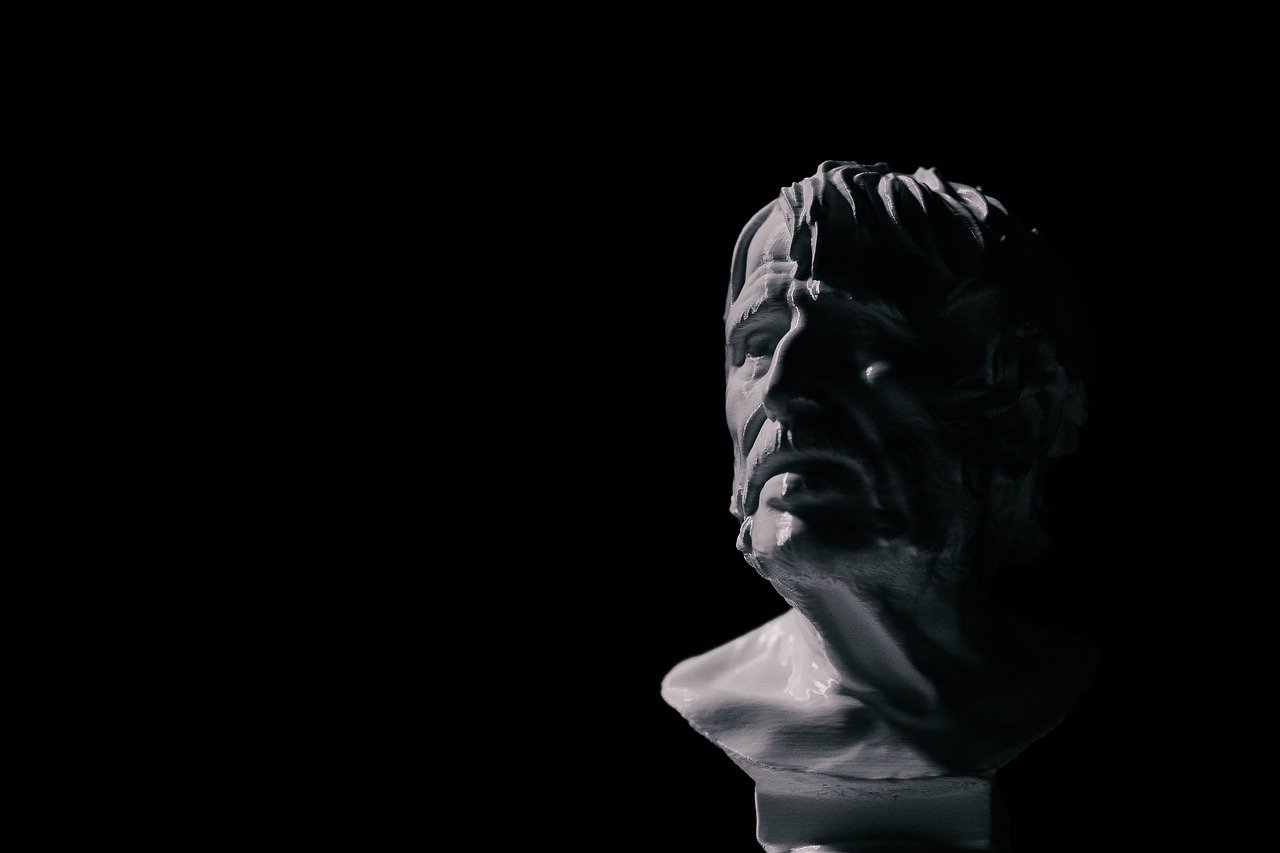
Enlightenment Thinkers and Democratic Ideals
The Enlightenment era was a pivotal moment in history, acting as a catalyst for political transformation and the birth of modern democratic ideals. Thinkers like John Locke and Jean-Jacques Rousseau challenged the status quo, advocating for the principles of liberty, equality, and fraternity. Their revolutionary ideas not only reshaped political landscapes but also laid the groundwork for contemporary democratic societies. Imagine a world where the authority of kings was questioned, and the rights of individuals became paramount—this was the essence of Enlightenment thought.
John Locke, often referred to as the father of liberalism, argued that individuals possess natural rights to life, liberty, and property. He believed that government should exist to protect these rights and that its legitimacy comes from the consent of the governed. Locke's social contract theory posited that people agree to form governments to safeguard their rights, and if a government fails in this duty, citizens have the right to revolt. This radical idea inspired revolutions across the globe, from the American Revolution to the French Revolution, as people sought to claim their rights against oppressive regimes.
On the other hand, Jean-Jacques Rousseau took a different approach with his concept of the "general will." He argued that true freedom is found in collective decision-making, where individuals come together to form a community that reflects the common good. Rousseau’s famous work, The Social Contract, emphasized that legitimate political authority relies on the will of the people, thus promoting the idea of democracy as a means of ensuring that everyone’s voice is heard. His assertion that "man is born free, and everywhere he is in chains" resonates even today, reminding us of the ongoing struggle for freedom and equality.
Both Locke and Rousseau, along with other Enlightenment thinkers, ignited a flame of democratic ideals that spread like wildfire across Europe and beyond. Their ideas prompted debates about governance, citizenship, and the role of the individual in society. To illustrate the impact of these thinkers, consider the following table that summarizes their key contributions:
| Philosopher | Key Contribution | Impact on Democracy |
|---|---|---|
| John Locke | Natural Rights, Social Contract | Foundation for liberal democracy and human rights |
| Jean-Jacques Rousseau | General Will, Collective Sovereignty | Influence on participatory democracy and civic responsibility |
Moreover, Enlightenment thinkers also emphasized the importance of reason and empirical evidence in political discourse. They encouraged individuals to think critically about governance, challenging the divine right of kings and advocating for rationality in political decision-making. This shift towards reason not only democratized political thought but also paved the way for the development of modern political science.
In conclusion, the Enlightenment thinkers were instrumental in shaping democratic ideals that still resonate today. Their emphasis on individual rights, collective governance, and rational discourse laid the groundwork for modern democracies, inspiring generations to fight for freedom and equality. As we navigate our current political landscape, reflecting on the principles established by these thinkers is essential in understanding the ongoing quest for democracy and justice.
- Who were the main Enlightenment thinkers? The main Enlightenment thinkers include John Locke, Jean-Jacques Rousseau, Voltaire, and Montesquieu, among others.
- What is the significance of the social contract theory? The social contract theory posits that governments derive their authority from the consent of the governed, highlighting the importance of individual rights and democratic governance.
- How did Enlightenment ideas influence modern democracy? Enlightenment ideas promoted the concepts of liberty, equality, and fraternity, which became foundational principles in the establishment of modern democratic systems.

The Impact of Philosophy on Modern Political Movements
Philosophy has always been a driving force behind the evolution of political thought, and its impact on modern political movements cannot be overstated. The intricate dance between philosophical ideas and political action has shaped the very fabric of our societies, igniting revolutions and inspiring change. From the existentialist cries for individual freedom to the feminist demands for gender equality, philosophical frameworks have provided the intellectual backbone for movements that seek to challenge the status quo.
One of the most significant influences of philosophy on modern political movements is seen in the realm of existentialism. Thinkers like Jean-Paul Sartre and Albert Camus championed the idea of individual freedom and personal responsibility, arguing that individuals must carve their own paths in a world that often feels absurd and indifferent. This philosophy has resonated deeply with activists who fight for civil liberties and human rights, as it emphasizes the importance of personal agency in the political sphere. Existentialism posits that individuals are not merely products of their environment; rather, they possess the power to shape their destinies. This notion has fueled movements advocating for freedom of expression, social justice, and the right to dissent.
In addition to existentialism, the feminist movement has been profoundly influenced by political philosophy. Feminist theorists such as Simone de Beauvoir and Judith Butler have interrogated traditional political structures, revealing how they often perpetuate gender inequality. De Beauvoir's seminal work, The Second Sex, challenged the notion that women were inherently inferior, arguing instead for their liberation and equal participation in all aspects of life. This philosophical foundation has empowered countless women to demand their rights and challenge patriarchal norms. As a result, feminist political philosophy has not only reshaped discussions around gender but has also intersected with other movements, such as LGBTQ+ rights, creating a more inclusive political discourse.
Moreover, the impact of Marxism on modern political movements is undeniable. Karl Marx's critique of capitalism and his vision of a classless society have inspired various socialist and communist movements around the globe. Marxism posits that the struggle between classes is a fundamental aspect of human history, and this perspective has galvanized people to fight against economic inequality and exploitative labor practices. The philosophical underpinnings of Marxism have led to the establishment of various political parties and movements that advocate for workers' rights, social welfare, and economic justice. In recent years, the resurgence of leftist political ideologies, particularly among younger generations, can be traced back to the enduring relevance of Marxist thought.
To illustrate the diverse impacts of these philosophical movements, consider the following table that summarizes key philosophical ideas and their corresponding modern political movements:
| Philosophical Movement | Key Thinkers | Modern Political Movements |
|---|---|---|
| Existentialism | Jean-Paul Sartre, Albert Camus | Civil rights, personal freedom movements |
| Feminism | Simone de Beauvoir, Judith Butler | Gender equality, LGBTQ+ rights |
| Marxism | Karl Marx, Friedrich Engels | Socialism, labor rights movements |
In conclusion, the impact of philosophy on modern political movements is a testament to the power of ideas. Philosophical frameworks not only provide the intellectual tools necessary for critique and action but also inspire individuals to envision a more just and equitable world. As we continue to grapple with pressing political issues, it is essential to recognize the philosophical roots that inform our beliefs and actions. After all, the interplay between philosophy and politics is not just a historical phenomenon; it is a living, breathing dialogue that shapes the future of our societies.
- How has philosophy influenced modern political movements? Philosophy provides the foundational ideas that inspire and guide political movements, shaping their goals and strategies.
- What role do existentialist thinkers play in political activism? Existentialist thinkers emphasize individual freedom and responsibility, motivating activists to fight for personal liberties and social justice.
- How does feminist political philosophy challenge traditional structures? Feminist political philosophy critiques patriarchal systems and advocates for gender equality, reshaping discussions around power and rights.
- What is the significance of Marxism in contemporary politics? Marxism critiques capitalism and inspires movements for economic justice and workers' rights, remaining relevant in today's socio-economic landscape.

Existentialism and Political Freedom
Existentialism, a philosophical movement that gained prominence in the 20th century, fundamentally reshapes our understanding of political freedom. At its core, existentialism emphasizes individual existence, freedom, and choice, asserting that individuals are responsible for giving their own lives meaning and direction. Philosophers like Jean-Paul Sartre and Albert Camus championed these ideas, arguing that true freedom comes from recognizing one’s own agency in a world that often feels absurd and chaotic.
Sartre famously declared, “existence precedes essence,” suggesting that humans are not born with predetermined purposes but instead must forge their own paths. This notion challenges traditional political systems that often impose rigid structures and ideologies upon individuals. In an existentialist framework, political freedom is not merely about the absence of oppression but about the ability to make authentic choices that reflect one’s true self. This perspective invites us to question: are we truly free if our choices are constrained by societal norms and expectations?
Furthermore, existentialism posits that the acknowledgment of our freedom can lead to feelings of anxiety and responsibility. This is where the concept of political responsibility emerges. When individuals recognize their role in shaping their societies, they must confront the weight of their choices. Sartre and Camus both argued that this responsibility extends beyond personal decisions to encompass social and political engagement. They believed that individuals must not only seek their own freedom but also advocate for the freedom of others, creating a collective responsibility to challenge oppressive systems.
To illustrate this connection between existentialism and political freedom, consider the following table that outlines key existentialist concepts and their implications for political thought:
| Existentialist Concept | Implication for Political Freedom |
|---|---|
| Individual Agency | Emphasizes the power of personal choice in shaping political landscapes. |
| Absurdity of Existence | Encourages questioning of established political norms and ideologies. |
| Authenticity | Promotes the pursuit of genuine self-expression in political engagement. |
| Collective Responsibility | Highlights the need for solidarity in fighting against oppression. |
In the context of modern political movements, existentialist thought has found resonance among activists advocating for human rights, social justice, and environmental causes. The emphasis on personal responsibility and the quest for authenticity encourage individuals to challenge systemic injustices and seek transformative change. For instance, movements like Black Lives Matter and #MeToo can be seen as existentialist responses to the absurdities of social inequality, where individuals come together to assert their freedom and demand recognition of their rights.
Ultimately, existentialism invites us to reflect deeply on the nature of our political engagement. It asks us to consider not just what freedom means in a theoretical sense, but how we can actively participate in crafting a society that honors the dignity and autonomy of every individual. As we navigate the complexities of our political realities, the existentialist call to embrace our freedom and responsibility remains ever-relevant, challenging us to rise above mere survival and strive for a more just and equitable world.
- What is existentialism? Existentialism is a philosophical movement that emphasizes individual freedom, choice, and the search for meaning in a seemingly indifferent universe.
- How does existentialism relate to politics? Existentialism challenges traditional political structures by advocating for personal agency and responsibility, encouraging individuals to actively engage in shaping their societies.
- Who are key existentialist philosophers? Prominent existentialist philosophers include Jean-Paul Sartre, Albert Camus, and Simone de Beauvoir, all of whom explored themes of freedom, choice, and responsibility.
- Can existentialism inform modern political movements? Yes, existentialist thought has influenced contemporary movements by emphasizing the importance of individual and collective responsibility in the fight for social justice and human rights.

Feminism and Political Philosophy
Feminism has profoundly influenced political philosophy, challenging the traditional paradigms that have historically marginalized women's voices and experiences. At its core, feminism seeks to interrogate the structures of power that dictate societal norms and values, advocating for gender equality and justice. The intersection of feminism and political philosophy is not merely a theoretical exercise; it is a critical examination of how political systems can perpetuate inequality and oppression.
Key feminist theorists have made significant contributions to political thought, reshaping our understanding of justice, rights, and the role of the state. Thinkers like Simone de Beauvoir, Judith Butler, and bell hooks have articulated the need for a feminist lens in evaluating political structures. For instance, Beauvoir's seminal work, The Second Sex, argues that women have been historically defined in relation to men, leading to their systemic oppression. This idea has spurred discussions on how political philosophies must adapt to include women's perspectives and experiences.
Moreover, feminism has introduced crucial concepts into political discourse, such as the notion of intersectionality. Coined by Kimberlé Crenshaw, intersectionality emphasizes that individuals experience oppression in varying degrees based on multiple identities, including race, class, and gender. This framework encourages a more nuanced understanding of political issues, recognizing that a one-size-fits-all approach to policy and governance often fails to address the needs of marginalized groups.
Feminist political philosophy also critiques traditional notions of power and authority. Rather than viewing power as a finite resource to be competed for, feminist theorists argue for a more collaborative approach to governance. This perspective aligns with the idea of relational power, where the focus shifts from domination to cooperation and mutual respect. By advocating for inclusive decision-making processes, feminists challenge the status quo and promote a political landscape that values diverse voices.
In contemporary political movements, feminism continues to play a vital role. The #MeToo movement, for example, has highlighted the pervasive nature of sexual harassment and assault, demanding accountability and systemic change. This activism demonstrates how feminist philosophy can translate into tangible political action, pushing for reforms that address gender-based violence and inequality.
As we look to the future, it is clear that the integration of feminist thought into political philosophy is not just beneficial; it is essential for creating a just and equitable society. The ongoing dialogue between feminism and political philosophy challenges us to rethink our assumptions about power, justice, and the role of individuals within the political sphere. By embracing these ideas, we can work towards a political landscape that truly reflects the diverse experiences of all its citizens.
- What is the main goal of feminist political philosophy?
Feminist political philosophy aims to critique and transform traditional political theories that have excluded or marginalized women and other oppressed groups, advocating for gender equality and justice. - Who are some key feminist theorists?
Notable feminist theorists include Simone de Beauvoir, Judith Butler, bell hooks, and Kimberlé Crenshaw, each contributing unique perspectives on gender, power, and politics. - How does intersectionality relate to feminism?
Intersectionality is a framework that examines how various social identities, such as race, class, and gender, intersect to create unique experiences of oppression and privilege, emphasizing the need for a comprehensive approach to social justice. - What impact has feminism had on modern political movements?
Feminism has significantly shaped modern political movements, such as the #MeToo movement, which has brought attention to issues of sexual harassment and gender-based violence, advocating for systemic change.
Frequently Asked Questions
- What is political philosophy?
Political philosophy is the study of fundamental questions about the state, government, politics, liberty, justice, and the enforcement of a legal code by authority. It explores how philosophical ideas shape political systems and vice versa, providing a framework for understanding governance and societal structures.
- Who are some key figures in the history of political philosophy?
Some of the most influential figures include Plato, Aristotle, Machiavelli, John Locke, and Jean-Jacques Rousseau. Each of these thinkers contributed unique perspectives on governance, justice, and the role of individuals within society, which continue to influence modern political thought.
- How did Plato envision an ideal state?
In his work The Republic, Plato described an ideal state ruled by philosopher-kings, who possess wisdom and virtue. He believed that justice and harmony could only be achieved through a society governed by those who truly understand the good, contrasting sharply with more pragmatic approaches to governance.
- What is Aristotle's approach to politics?
Aristotle took a more empirical approach compared to Plato. He emphasized the importance of practical governance and civic responsibility, arguing that the best political system is one that promotes the common good and allows citizens to participate actively in their governance.
- What are Machiavelli's main contributions to political thought?
Machiavelli is best known for his work The Prince, where he presented a realistic view of political power. He argued that the ends often justify the means in politics, challenging traditional moral philosophies and highlighting the complexities of human behavior in the pursuit of statecraft.
- How did Enlightenment thinkers influence democratic ideals?
Enlightenment philosophers like Locke and Rousseau laid the groundwork for modern democracy through their ideas about the social contract and individual rights. They argued that governments should be based on the consent of the governed and that individuals have inherent rights that must be protected.
- What role does existentialism play in political philosophy?
Existentialism, as explored by philosophers like Sartre and Camus, emphasizes individual freedom and responsibility. This perspective challenges individuals to take ownership of their choices within political contexts, advocating for authenticity and personal agency in the face of societal constraints.
- How has feminism shaped political philosophy?
Feminist political philosophy critiques traditional political structures and advocates for gender equality. Key feminist theorists have challenged the male-dominated narratives of political thought, emphasizing the importance of including women's voices and experiences in political discourse and decision-making.

